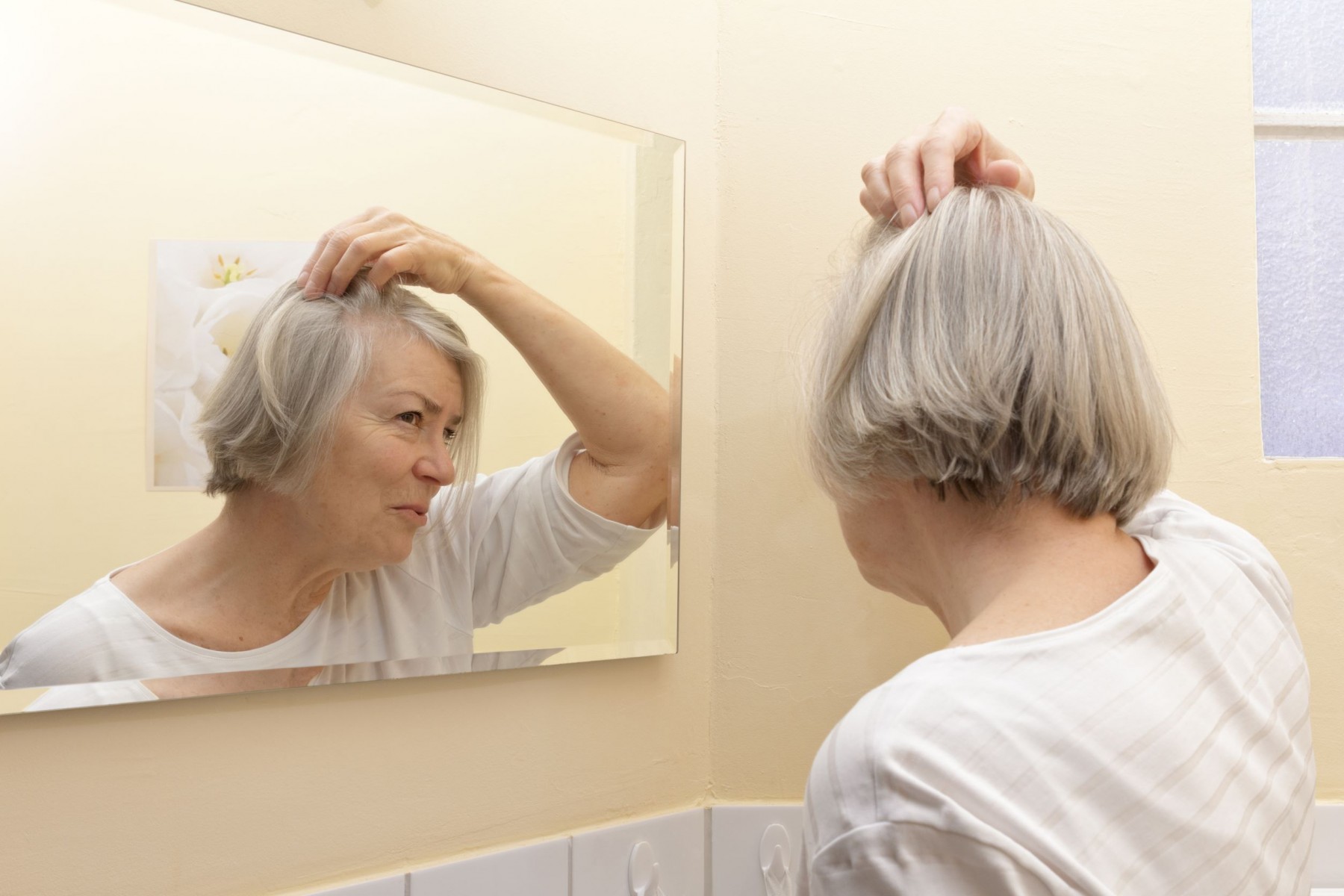A Follicle Challenge of a Different Sorts
The Stress of COVID is Causing Hair Shedding in Some Cases

One thing we’ve learned during the COVID pandemic is that no two cases are alike. Some people are asymptomatic while others have serious symptoms or long-term issues. So it may not come as a surprise that some people are experiencing hair loss with their particular case. According to Dr. Mirza Ali Khan, a family practice physician from OSF HealthCare, it’s not a symptom of COVID, but rather a reaction to the stress of having COVID.
This hair shedding is called telogen effluvium and, according to the American Academy of Dermatology Association, it happens when more hairs than normal enter the shedding (telogen) phase of the hair growth lifecycle at the same time.
“It’s due to having a stress impact, whether it’s mentally or physically, and in this case we’re talking about COVID, which is stressful both mentally and physically," says Dr. Khan. "That’s when the body redirects its resources, and in this case it holds down sending those resources to the hair so it’s stops the hair in the growth phase; it’s more of a hair shedding than an actual hair loss.”
It’s easy to worry during a pandemic. But it’s not just COVID that has people feeling anxious. Other taxing events such as childbirth or a major surgery can also produce enough stress to cause hair shedding.
“It’s quite common if someone is going through a divorce or a death in the family – anything like that can be a trigger," says Dr. Khan. "At the end of the day it depends on the person – how they deal both mentally and physically – and that determines if they do have it and the rate they will have this hair shedding.”
This hair shedding usually happens about three months after a stressful event. Dr. Khan says it could take another three to six months before it begins to grow back.
While there is no treatment for this hair shedding, there are things you can do that may help including exercise.
“If it does happen, work on ways to combat the stress," says Dr. Khan. "If you are able to exercise, if your body allows you, if you have family and friends that you’re able to talk to in order to relieve that stress, and it wouldn’t hurt to take vitamins that help with hair and nails such as Zinc and Vitamin B complex. The combination of those things will help, but at the end of the day if you still notice this going on for three to six months, it’s definitely good to get checked by your primary care physician for starters to see exactly what the cause is.”
Dr. Khan stresses the importance of staying in touch with your physician. He says if the shedding continues, a simple blood test could potentially get to the root of the problem if it’s related to another issue – such as a low thyroid level.
For more information about hair loss, visit OSF HealthCare.

